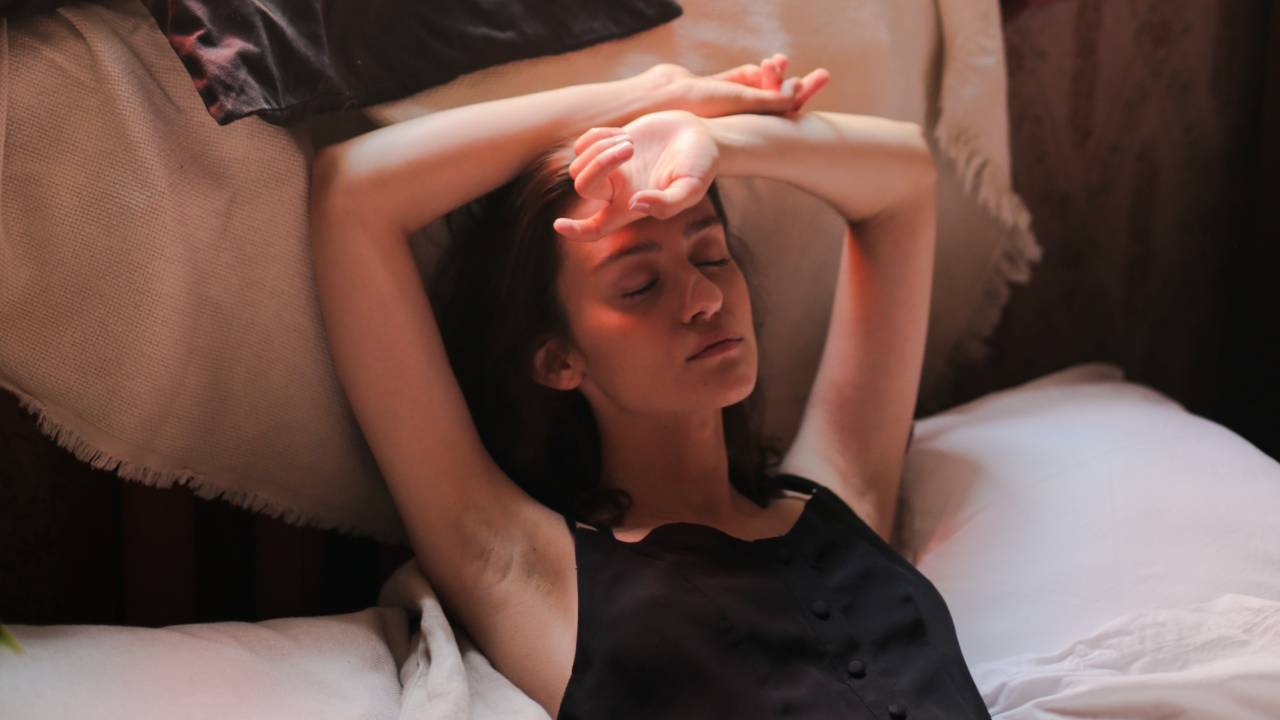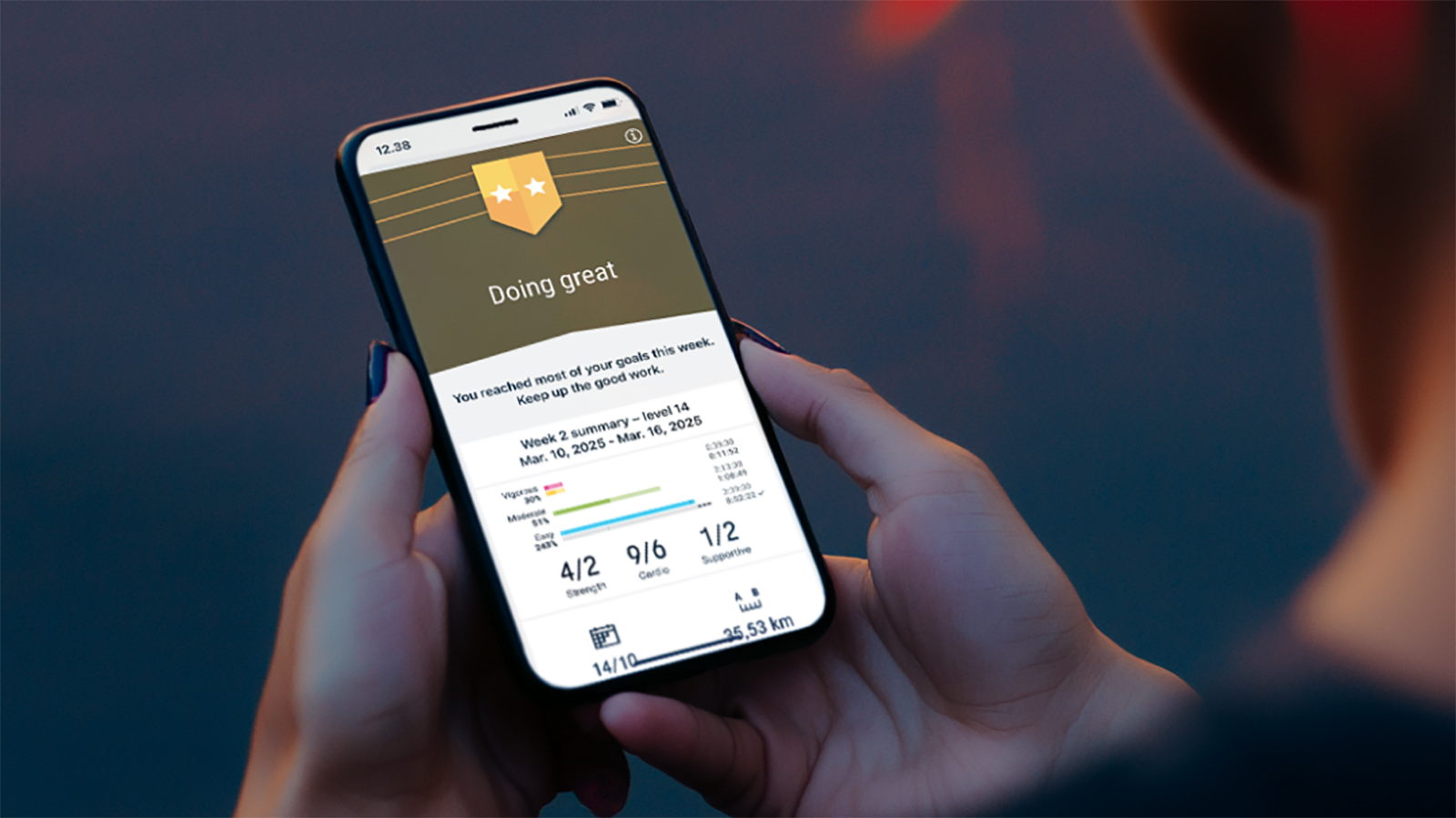

We’re all trying to sleep better, but sometimes it’s not the sleep quality itself that’s the biggest worry, but rather it’s the ability to fall asleep in the first place. Even if you have the best mattress to sleep on every night, falling asleep is not the easiest task, especially if you’re worrying about something, you’ve recently eaten a big meal or you’ve just finished some late night scrolling.
For those who have tried every sleep hack under the sun, from the military sleep method to the 4-7-8 breathing hack, it could be time to try the cognitive shuffle. The cognitive shuffle is a pre-sleep method which was developed by Canadian cognitive scientist, Luc Beaudoin, that encourages the brain to calm down by scrambling your thoughts.
While this might sound counterintuitive, Beaudion stated in conversation with Glamour magazine that the cognitive shuffle “could be the secret to a solid 8 hours of shut-eye.” So, what is the cognitive shuffle and how does it work? Keep reading to find out.
What is the cognitive shuffle?
The cognitive shuffle is a sleep trick which is not only championed for helping people fall asleep faster but also taking your mind off any stress or worry. The basics of the cognitive shuffle is to fill your brain with random words and images to jumble your thoughts. This tricks the brain’s sleep regulators into feeling groggy and ready for sleep, and distracts you from any worries you might be having.
Many experts have found that the reason this technique works is because the brain is distracted and can’t make sense of the random items you’re thinking about, making it easier for you to fall into a slumber. According to Beaudoin, the cognitive shuffle sleep method also plays on the brain’s response to danger. As quoted in Vogue, “the brain has evolved to constantly be alert to potential danger. When it checks if it’s safe to fall asleep at night, it’s time to relax.” So, by avoiding thinking of things which make you feel upset, worried or scared, you feel safe and can drift off to sleep more easily.

Before we get into how to do the cognitive shuffle, there are a few key things to keep in mind. The words or images you think about during cognitive shuffling shouldn’t have any connection to you, to ensure you don’t stay up all night worrying. For example, if you try to think about buildings or houses, this could conjure up feelings of anxiety around rent, buying a house or going to the office for work. The things you think about also shouldn’t be too complicated so you don’t stimulate your brain too much or stay awake longer puzzling over answers.
How to do the cognitive shuffle sleep hack
If you want to give the cognitive shuffle a try, here’s how to do it:
Sign up to the T3 newsletter for smarter living straight to your inbox
Get all the latest news, reviews, deals and buying guides on gorgeous tech, home and active products from the T3 experts
Step 1: Get comfortable in bed and ready to sleep.
Step 2: Pick a letter at random and think of a word that starts with that letter. The word should have at least 5 letters. Remember, these words or items should be easy to visualise, non-threatening and emotionally neutral.
Step 3: Spell out the word in your mind before thinking of new words that start with each letter. For example, if the original word you’re thinking of is ‘water’, think of another word that starts with ‘w’ (wellies), another for ‘a’ (avocado), another for ‘t’ (trees) and so on. Rather than race through each word, pause and imagine each word to get a clearer picture before you move on to the next one.
Step 4: Make your way through the letters so you have a big scramble of words and images in your mind. As you do this, you should start to fall asleep.
That’s how to do the cognitive shuffle! Keep in mind that it should take between 5-15 minutes for you to drift off with this hack. If you’re still finding it tricky to fall asleep, check out these 4 expert-approved TikTok sleep hacks and make sure you’re set-up for sleep success with these 6 rules for great sleep hygiene.

Beth is Home Editor for T3, looking after style, living and wellness. From the comfiest mattresses to strange things you can cook in an air fryer, Beth covers sleep, yoga, smart home, coffee machines, watches, grooming tools, fragrances, gardening and much more. If it's something that goes in your house, chances are Beth knows about it and has the latest reviews and recommendations! She's also in the know about the latest deals and discount codes from top brands and retailers.
Having always been passionate about writing, she’s written for websites, newspapers and magazines on a variety of topics, from jewellery and culture, to food and telecoms. You can find her work across numerous sites, including Wedding Ideas Magazine, Health & Wellbeing, The Bristol Post, Fashion & Style Directory, TechRadar, CreativeBloq and more. In her spare time, Beth enjoys running, reading, baking and attempting craft projects that will probably end in disaster!
-
 3 overrated shoulder exercises, according to a fitness expert (and what to do instead)
3 overrated shoulder exercises, according to a fitness expert (and what to do instead)Sculpt 3D shoulders whilst minimising injury with these three alternative exercises
By Bryony Firth-Bernard Published
-
 Polar’s new subscription feature lands in the shadow of Garmin’s Connect+ rollout
Polar’s new subscription feature lands in the shadow of Garmin’s Connect+ rolloutPR genius or timing disaster? Polar’s new Fitness Programme adds adaptive training to its ecosystem
By Matt Kollat Published
-
 I spent 6 weeks with the FoodMarble Aire 2: here’s what I learned about my gut health
I spent 6 weeks with the FoodMarble Aire 2: here’s what I learned about my gut healthI’ve been testing the clever breath-testing gadget with the companion app over several weeks to find out if it delivers on its promises
By Lee Bell Published
-
 Oil pulling is going viral on TikTok for stopping morning breath – but does it actually work?
Oil pulling is going viral on TikTok for stopping morning breath – but does it actually work?4 hacks that prevent morning breath, according to a sleep expert
By Bethan Girdler-Maslen Published
-
 These limited edition McLaren x Loop earplugs are what you need for Formula 1 season
These limited edition McLaren x Loop earplugs are what you need for Formula 1 seasonMcLaren teams up with Loop on limited edition noise-reducing earplugs
By Bethan Girdler-Maslen Published
-
 5 sleep supplements that help me achieve 8+ hours of rest every night
5 sleep supplements that help me achieve 8+ hours of rest every nightIt took me years to perfect my sleep routine – here are the supplements that helped
By Lizzie Wilmot Published
-
 3 reasons why you wake up at 3am every night – and how to avoid it
3 reasons why you wake up at 3am every night – and how to avoid itAlways waking up in the middle of the night? This could be why…
By Bethan Girdler-Maslen Published
-
 This tiny device will automatically disable your distracting apps before you sleep
This tiny device will automatically disable your distracting apps before you sleepSay hello to Kip...
By Lizzie Wilmot Last updated
-
 Therabody experts give 7 tips for perfecting your sleep routine for World Sleep Day
Therabody experts give 7 tips for perfecting your sleep routine for World Sleep DayFrom breathing exercises to sleep masks, here’s how to prioritise sleep, according to experts
By Bethan Girdler-Maslen Published
-
 Loop Dream review: super soft earplugs to help you snooze soundly, even if you’re a side sleeper
Loop Dream review: super soft earplugs to help you snooze soundly, even if you’re a side sleeperSquishy silicone and uniquely shaped ear tips take Loop’s nighttime earplugs to dreamy heights
By Joanna Ebsworth Published